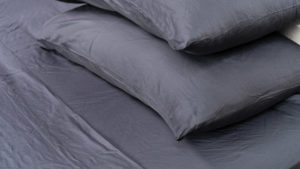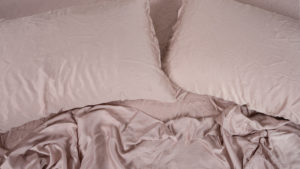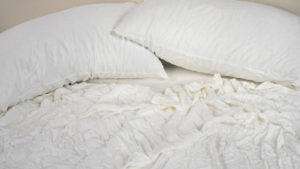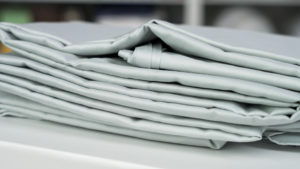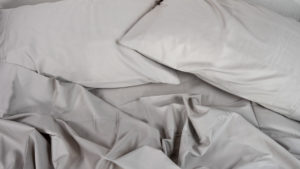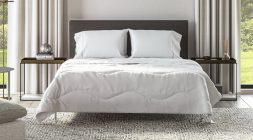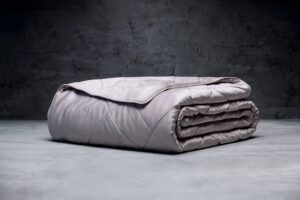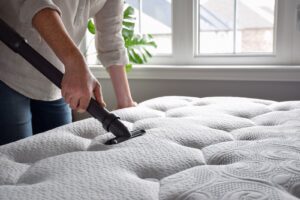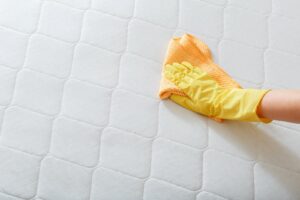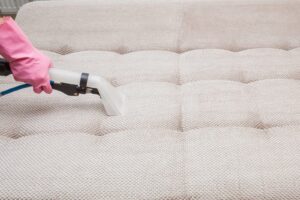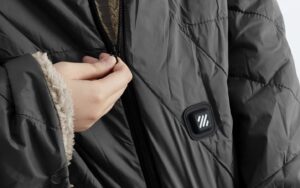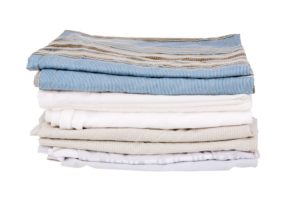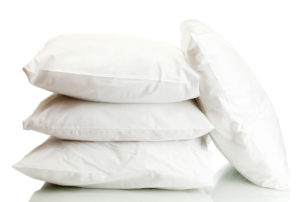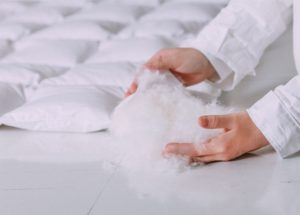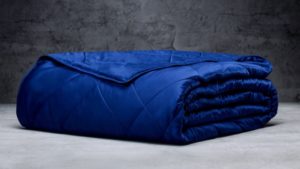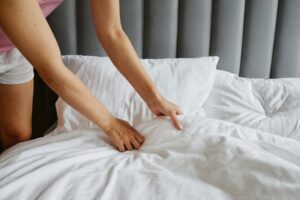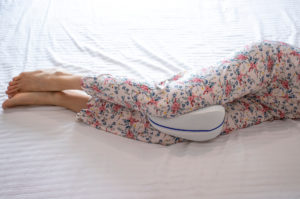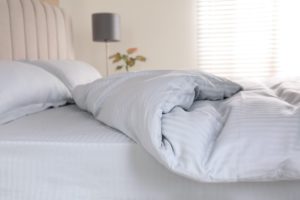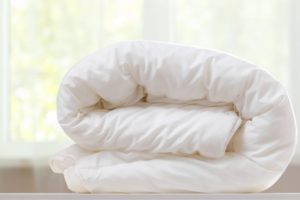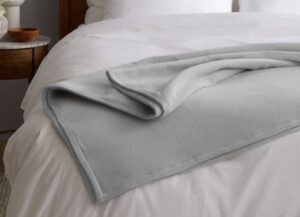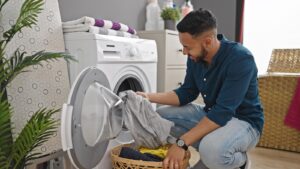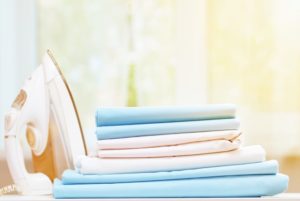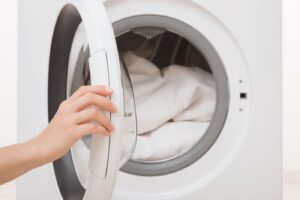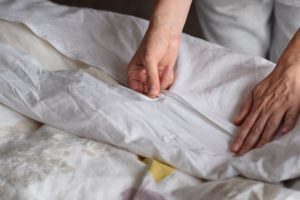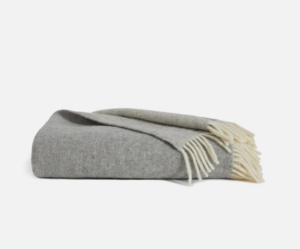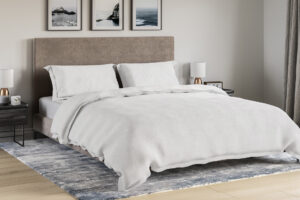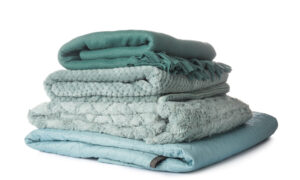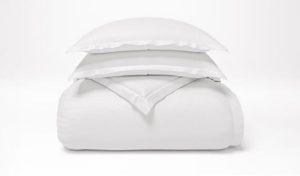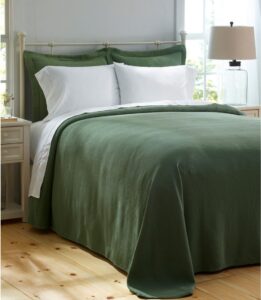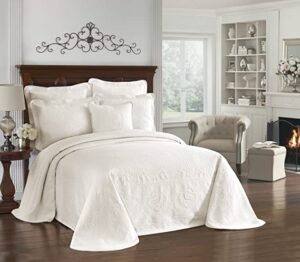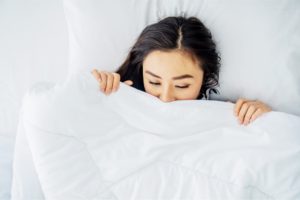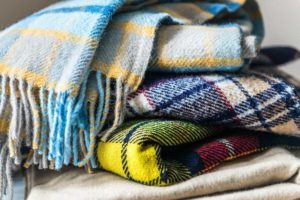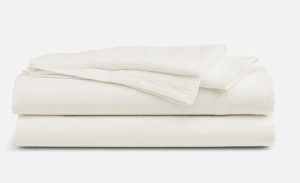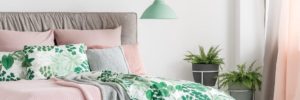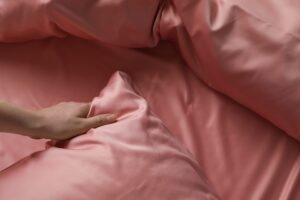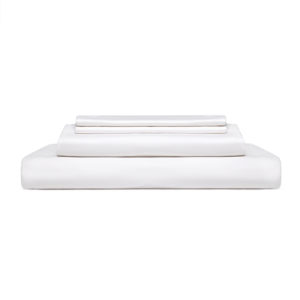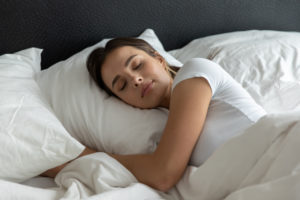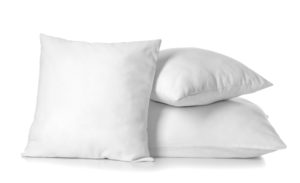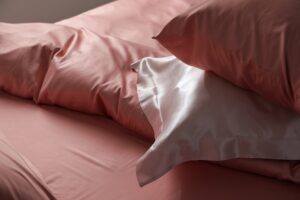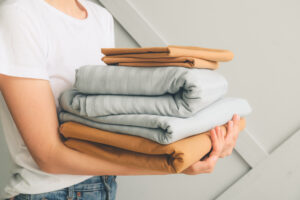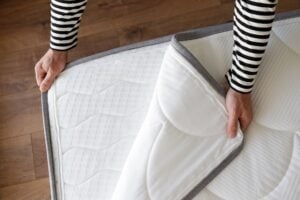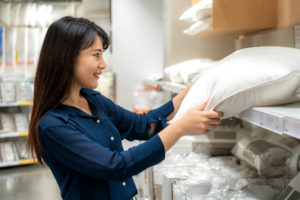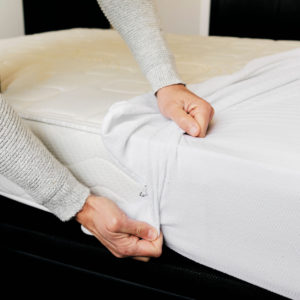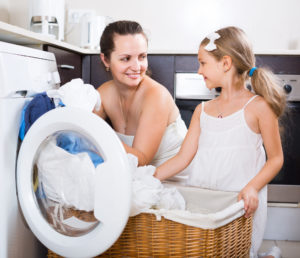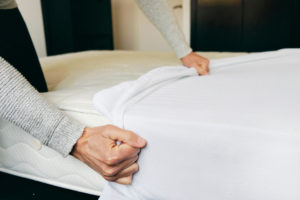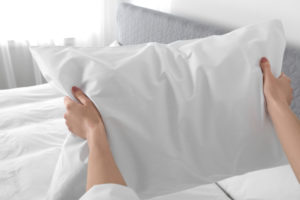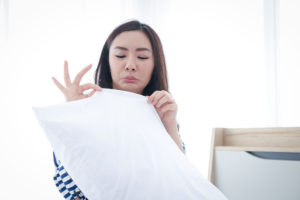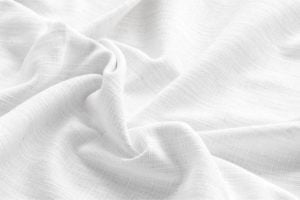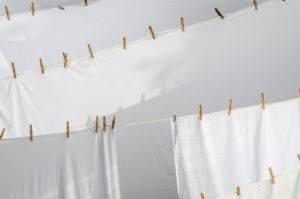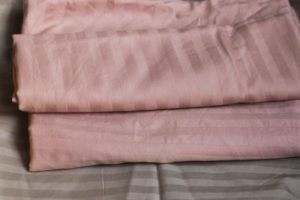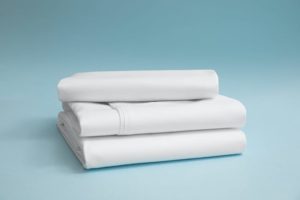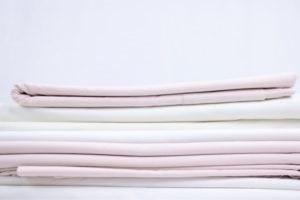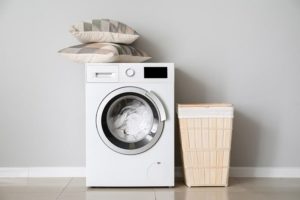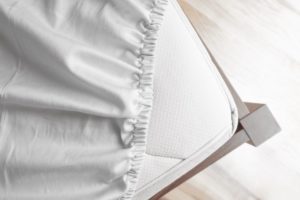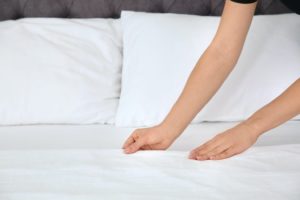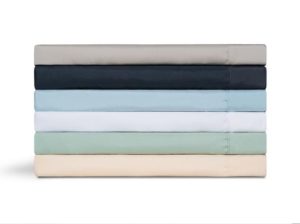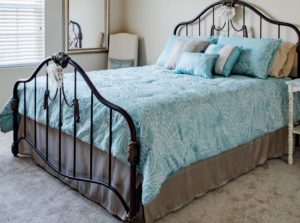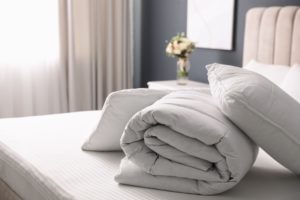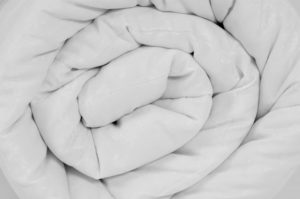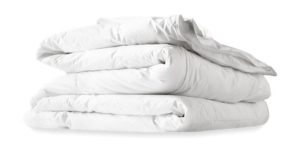Bamboo vs. Cotton Sheets: Which Should You Choose?
With an array of types of sheets on the market, selecting the best option for you can be more complicated than it seems. Some shoppers may be tempted to purchase sheets based on handfeel, but this doesn’t necessarily reflect some of the most important performance factors.
The category a sheet set falls into can be at least as important as the product itself. These classifications often carry important implications for how the sheets will feel and how well they’ll hold up over time.
Bamboo and cotton sheets are two widely available varieties. Cotton sheets are a classic for their breathability and durability. Egyptian cotton is especially prized. Bamboo sheets are still relatively new to the market, though they’re gaining popularity thanks to their durability and lightness. Depending on the processing, bamboo sheets can also be considered sustainable and eco-friendly because bamboo can grow rapidly with fewer resources.
We’ll compare bamboo vs. cotton sheets head-to-head to help you assess each option’s performance and potential benefits and drawbacks.
Bamboo Sheets
Sheets labeled as “bamboo” typically consist of rayon, lyocell, or modal fabric derived from bamboo fibers. These sheets are often relatively similar to cotton in their softness, breathability, and durability.
Bamboo sheets are frequently considered sustainable because the bamboo plant grows very quickly and often doesn’t require pesticides, fertilizers, or irrigation. But while the raw material may be eco-friendly, the viscose process uses chemicals to dissolve bamboo pulp in order to extract cellulose to spin into fibers. Rayon, lyocell, and modal, some of the most common types of bamboo fabric, all use the viscose process.
While it may be harder to come by, bamboo linen, also known as bast bamboo fiber, uses a chemical-free mechanical process that may appeal more to eco-conscious shoppers. However, the resulting fabric tends to be somewhat coarse and prone to wrinkling.
Our guide to the best bamboo sheets highlights some of the best options available.
Types of Bamboo Sheets
As we discussed above, the exact materials vary between bamboo sheets, but that’s not the only thing that separates one set from another. Sheets can also use different weaves, which further affects their feel and performance. The three most common weaves used in bamboo sheets include:
Percale: This weave uses a one thread over, one thread under pattern, which creates a crisp, lightweight fabric with a matte finish. Their breathability makes percale sheets popular with hot sleepers, but they’re also prone to wrinkling.
Sateen: The sateen weave is one thread under and three to four threads over. Sateen typically has a silky feel and a lustrous sheen. It naturally resists wrinkles, lending to a smooth look that drapes nicely over the bed. Sateen sheets are more prone to retaining heat and pilling and/or snagging.
Twill: The twill weave has diagonal parallel ribs. This is the weave used in denim, so it may look familiar. Because the ribbing adds texture, twill sheets may not be the smoothest option, but they tend to be very durable.
Pros & Cons
Bamboo Sheets
| Pros | Cons |
|---|---|
| Breathable | Often use chemical processing |
| Soft | May cost more than cotton |
| Durable | May wrinkle depending on the weave |
| Sometimes considered eco-friendly |
Cotton Sheets
Cotton is the most common fabric for sheets. This classic option uses natural fibers from the cotton plant. The resulting sheets are typically soft, durable, and easy to care for.
Sheets may consist of one or more types of cotton. Egyptian cotton has extra-long staples, which make the resulting material exceptionally soft and durable, but higher in price. Pima cotton also has extra-long staples and many of the same benefits as Egyptian cotton without the hefty price tag. “Regular cotton,” non-organic cotton grown in the United States, is often the most affordable but least durable option.
The price of cotton sheets typically reflects the quality and luxury of the materials. Sheet sets that use high-quality cotton with long- to extra-long staples traditionally cost more. Customers should be aware, however, that many affordably-priced options labeled “Egyptian cotton” may contain blends to save money. If you’re considering paying a premium price for Egyptian cotton sheets, you may want to check that all of the materials hold certification from the Cotton Egypt Association.
Check out our guide to the best cotton sheets to learn more.
Types of Cotton Sheets
Like bamboo sheets, cotton sheets can vary in both their materials and weaves. The most common weaves for cotton sheets are:
Percale: The same one over, one under weave pattern used in bamboo sheets is also common in cotton sheets. Cotton percale sheets are often recommended for hot sleepers due to their superior breathability and moisture wicking. They are usually quite durable and get softer with each additional washing.
Sateen: For the sateen weave, three or four threads go over for each thread that goes under. This creates a silky fabric that drapes well and has a subtle luster. Cotton sateen sheets are not prone to wrinkling, but they may pill or snag. They also tend to retain more heat than percale.
Twill: You can recognize twill by its diagonal ribbing, which looks similar to denim. Cotton twill sheets typically aren’t as soft as other options, but they usually last for years.
Jersey: Jersey is actually a knit rather than a weave. Since cotton jersey is the same material found in many t-shirts, sleeping on cotton jersey sheets may feel like being enveloped by your favorite tee.
Pros & Cons
Cotton Sheets
| Pros | Cons |
|---|---|
| Durable | Some weaves are wrinkle-prone |
| Breathable | Typically requires more water and pesticides for cultivation |
| Moisture-wicking | May shrink slightly |
| Easy to clean | |
| Gets softer with additional washing |
Bamboo vs. Cotton Sheets
The differences between bamboo and cotton sheets are quite subtle. Both are natural materials that tend to excel in temperature regulation and durability, though some argue that cotton is more breathable and bamboo lasts longer. They also use many of the same weaves.
Eco-conscious shoppers may flock to either option since both use natural materials, but they also each have some potential drawbacks when it comes to sustainability. Growing bamboo is typically gentler on the environment than growing cotton, but processing that bamboo into fabric usually uses chemical agents.
While bamboo sheets tend to cost a bit more than most cotton sets, Egyptian cotton sheets are usually significantly more expensive than bamboo sets.
| Category | Bamboo | Cotton |
|---|---|---|
| Durability | With proper care, bamboo sheets are usually extremely durable. Bamboo sheets also tend to hold dye better, so the colors stay more vivid. | Cotton sheets have long been prized for their durability. Since they get softer with age, many owners prefer the feel of older sheets to new ones. |
| Available Variety | Most bamboo sheets use a percale, sateen, or twill weave. Sheets labeled as “bamboo” may technically be classified as rayon, modal, lyocell, or bamboo linen depending on how the materials are processed. | Cotton sheets typically use a percale, sateen, or twill weave, but knit jersey sheets are also widely available. Egyptian cotton, Pima cotton, and regular cotton are the most common materials. |
| Comfort & Feel | Feel ultimately depends on the weave and material, but most bamboo sheet sets are smooth and soft. | The feel of cotton sheets varies based on the type of cotton and the weave of the fabric. While most options are smooth and soft, percale cotton sheets sometimes feel somewhat rougher at first, but soften after a few washings. |
| Cost | Bamboo sheet sets typically range from around $50 to over $200. They tend to be slightly more expensive than their cotton counterparts | Cotton sheet sets start at under $50. However, Egyptian cotton sheets can cost over $500. |
| Temperature Neutrality | As a natural fabric, bamboo is fairly breathable, which helps keep the sleeper cool and comfortable. However, many sleepers think that it doesn’t sleep as cool as cotton. | Temperature regulation is one of the biggest strengths of most cotton sheet sets thanks to their combination of breathability and moisture-wicking. |
| Cleaning & Care | Most manufacturer instructions call for machine washing and drying bamboo sheets. If cared for properly, they should withstand routine washing. | Cotton sheets are usually machine washable and dryable following the manufacturer’s care instructions. Each laundering should make cotton sheets softer and more supple. |
Our Verdict
While the differences between bamboo and cotton sheets are subtle, they may be significant enough to make you favor one over another.
Hot sleepers and anyone who tends to sweat overnight might appreciate the breathability and moisture-wicking of cotton sheets, especially those with a percale weave. Shoppers on a budget may be able to find a more affordable set of cotton sheets than bamboo sheets. However, those looking for a splurge-worthy luxury sheet set can also find it with Egyptian cotton.
Customers concerned with renewability, pesticide use, and water use may prefer bamboo sheets. Many sleepers also think bamboo-based fabric feels gentler on their skin, so these sheets could be a good choice for individuals with skin sensitivity.
You may prefer bamboo sheets if:
- You are concerned with pesticides and water usage
- You value renewable resources
- You have sensitive skin
You may prefer cotton sheets if:
- You often overheat during the night
- You’re prone to night sweats
- You prefer sheets that get softer with age

Still have questions? Ask our community!
Join our Sleep Care Community — a trusted hub of sleep health professionals, product specialists, and people just like you. Whether you need expert sleep advice for your insomnia or you’re searching for the perfect mattress, we’ve got you covered. Get personalized guidance from the experts who know sleep best.

